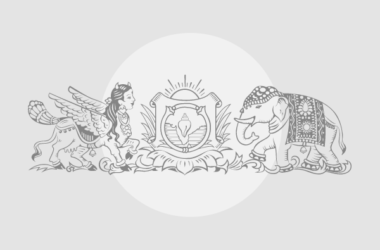Many institutional information media have misplaced credibility because of which they’re unable to determine a baseline of information or train narrative management. Image reveals journalists throughout a candlelight vigil in Mumbai in opposition to police brutalities and assaults on press freedom.
| Picture Credit score: Reuters
The democratic political course of in India is damaged. It isn’t simply that the institutional equipment has been captured, however that it’s turning into unimaginable to change the steadiness of energy on any problem to chart a brand new manner ahead. At its coronary heart, the democratic political course of just isn’t about regime change or “resistance”. The aim of democratic politics is to facilitate constructive collaboration, of which capturing energy and regime change is one half. Seen thus, democratic politics is about constructing consensus in favour of sure paths and offering platforms for collective motion. However all conventional websites of consensus-building — public discourse, civil society, and political events — have developed to structurally impede dialectical cooperation.
That is totally different from the problem of institutional seize as a result of establishments of the state are downstream of the political course of. Such establishments can neither be within the enterprise of facilitating collectives nor mooting alternate options; they as an alternative derive their credibility from procedural integrity. What’s at stake right here is extra elementary to our polity and speaks to our lack of ability to collaborate. Consequently, even on points which have deep public resonance, we as a polity are unable to maneuver past outrage, protest, or resignation. It’s essential to determine the pathologies affecting every of those websites if we’re to revive the democratic potential of our political course of.
The character of discourse
In a democracy, public discourse offers the house for the backwards and forwards essential to evolve consensus. Nonetheless, three linked developments have rendered our public discourse unable to facilitate this. First, many institutional information media have misplaced credibility because of which they’re unable to determine a baseline of information or train narrative management. Second, the rise of social media has decentralised the manufacture and propagation of content material making virality as an alternative of substance the first determinant of worth. Consequently, engagement is prioritised over high quality or veracity. Third, with the lack of credibility of many mainstream media, there has additionally been an increase in hyper-partisanship whereby persons are now not thinking about dialogue or deliberation and information/content material is primarily a instrument to advertise factional pursuits. Lastly, the proliferation of media has led to the fragmentation of our collective consideration whereas the regular stream of “content material” has made all points transient. On this backdrop, gaining visibility and capturing consideration is extra vital than dialogue. Consequently, the general public discourse has turn into a website for 1,000,000 particular person battles to seize consideration and reinforce tribal affiliation.
Civil society performs an important position because the voice of conscience in any polity and is the pure website to moot alternate options. Nonetheless, the locus of liberal civil society motion has more and more moved in direction of the state and its institutional intermediaries; civil society has turn into depending on a permissive state to have the ability to operate. On this mannequin, civil society derives legitimacy from normative purity as an alternative of drawing power from its representativeness. It’s thus suited extra to single-issue campaigns than its capacity to reconcile a number of viewpoints by negotiation. Civil society teams are additionally marked by the proclivity to bypass the political course of in favour of institutional processes, reminiscent of judicial or bureaucratic interventions, to advance their agenda.
Lastly, political events have their very own pathologies which shift focus to inside points and cut back house for deliberation. Conceptually, one facet of the position of the elected consultant is to extrapolate constituency points right into a coverage agenda. Nonetheless, the common elected consultant doesn’t have the facility and infrequently even the inclination to take action, inside the occasion setup. There may be additionally unsure electoral repay from influencing the coverage agenda versus straight intervening on behalf of the constituents for supply of assorted providers. Furthermore, elections, even on the constituency degree, contain a posh and variable mixture of “illustration” of constituency, State, and nationwide points. Consequently, all candidates besides the native strongman derive a decisive fraction of votes from the occasion image. This tilts the steadiness of energy closely in direction of decision-makers for occasion tickets inside the occasion. That is additional compounded by the truth that institutional positions of energy in any occasion are a fraction of the particular aspirants resulting in a preoccupation with inside machinations and sycophancy.
Our capacity to return collectively
These numerous pathologies feed off one another to fracture our capacity to return collectively. The media could spotlight points however shifting ahead requires organisation by civil society and political events. However, the dysfunction in our info ecosystem has powered the rise of unserious people to positions of affect. The highest-down nature of events has altered the construction of civil society by elevating the bar for grassroots mobilisation to an untenable top, main civil society teams to direct their energies into lobbying by middleman establishments or turning into brokers for the execution of bureaucratic tasks. This has depleted the organisational power of civil society and diminished its capacity to intervene within the political course of for correctives. The dialectical nature of those pathologies resists simple fixes however for the world’s largest democracy, the complexity of the problem just isn’t purpose sufficient to not attempt.
Ruchi Gupta is Govt Director of the Way forward for India Basis. X: @guptar








